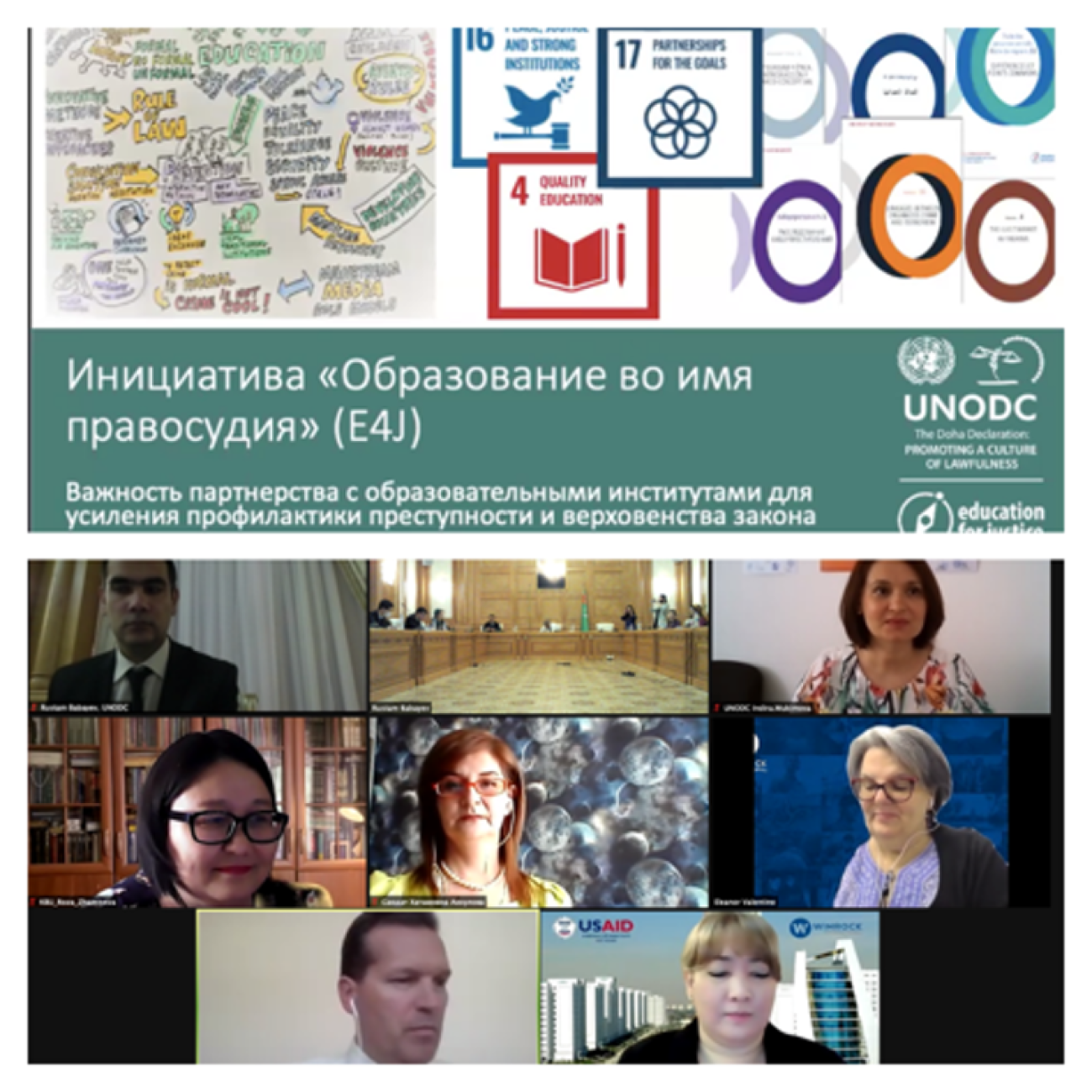UNODC teamed up with USAID-funded Safe Migration in Central Asia Program to introduce Turkmen authorities and academia to its Education for Justice initiative.
UNODC teamed up with USAID-funded Safe Migration in Central Asia Program to introduce Turkmen authorities and academia to its Education for Justice initiative. The event brought together representatives and academic staff of the Ministry of Education, the Institute of International Relations under the Ministry of Foreign Affairs, the International University for Humanities and Development and specialized school №21 in Ashgabat.
“The Education for Justice (E4J) initiative seeks to prevent crime and promote a culture of lawfulness through education activities designed for primary, secondary and tertiary levels. These activities help educators teach the next generation to better understand and address problems that can undermine the rule of law and encourage students to actively engage in their communities and future professions.”- said Mr. Koen Marquering, Manager of the UNODC Criminal Justice Program in Central Asia.
During the event, UNODC presented a set of innovative and interactive teaching products and activities for all levels of education. Experts and academics from Uzbekistan and Kazakhstan presented their experience with the use and integration of these training tools in their educational system.
Emphasizing the importance of teaching the next generation in the spirit of law observance, Eleanor Valentine, Chief of Party of the USAID funded Safe Migration in Central Asia Program noted: “Using the opportunities of science in the interests of peace and friendship, Turkmenistan attaches great importance to the use of innovative teaching methods, advanced practices are thoroughly studied and adopted, cooperation with authoritative research and educational centers in foreign countries is expanding. We hope that we can open a new page in this important process and contribute to the education of young citizens of Turkmenistan, providing them with opportunities to study important areas such as the rule of law and the prevention of prevention of global threats like trafficking in persons and other forms of transnational organized crime”.
Participants discussed available university modules, which are designed for use as either stand-alone teaching resources, or as a means of enhancing existing courses in criminology, law, political science, international relations, sociology, and many other disciplines. They are aimed at shaping tomorrow's leaders and empowering the next generation to tackle the most pressing global challenges posed by crime and help to achieve more just, peaceful and inclusive societies in line with SDG 16.
At the end of the roundtable discussion, Mr. Gurban Tushyyev, lead lawyer from the Ministry of Education of Turkmenistan expressed his appreciation: “This is a very good initiative, which raises a lot of interest among all of us here today. We hope we will be able to cooperate further in this area.”



